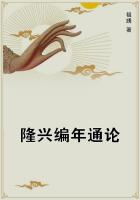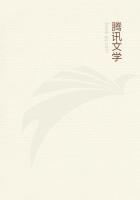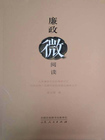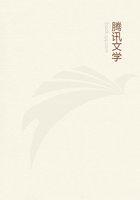"Can we choose such a thing? Is anybody allowed to choose to live always quite happily without duties? Sometimes I wonder. I love this wandering life so much, I am so happy in it, that I sometimes think it cannot last much longer."
He began to sift the sand through his fingers swiftly.
"Duties?" he said in a low voice.
"Yes. Oughtn't we to do something presently, something besides being happy?"
"What do you mean, Domini?"
"I hardly know, I don't know. You tell me."
There was an urging in her voice, as if she wanted, almost demanded, something of him.
"You mean that a man must do some work in his life if he is to keep himself a man," he said, not as if he were asking a question.
He spoke reluctantly but firmly.
"You know," he added, "that I have worked hard all my life, hard like a labourer."
"Yes, I know," she said.
She stroked his hand, that was worn and rough, and spoke eloquently of manual toil it had accomplished in the past.
"I know. Before we were married, that day when we sat in the garden, you told me your life and I told you mine. How different they have been!"
"Yes," he said.
He lit a cigar and watched the smoke curling up into the gold of the sunlit atmosphere.
"Mine in the midst of the world and yours so far away from it. I often imagine that little place, El Krori, the garden, your brother, your twin-brother Stephen, that one-eyed Arab servant--what was his name?"
"El Magin."
"Yes, El Magin, who taught you to play Cora and to sing Arab songs, and to eat cous-cous with your fingers. I can almost see Father Andre, from whom you learnt to love the Classics, and who talked to you of philosophy. He's dead too, isn't he, like your mother?"
"I don't know whether Pere Andre is dead. I have lost sight of him,"
Androvsky said.
He still looked steadily at the rings of smoke curling up into the golden air. There was in his voice a sound of embarrassment. She guessed that it came from the consciousness of the pain he must have caused the good priest who had loved him when he ceased from practising the religion in which he had been brought up. Even to her he never spoke frankly on religious subjects, but she knew that he had been baptised a Catholic and been educated for a time by priests. She knew, too, that he was no longer a practising Catholic, and that, for some reason, he dreaded any intimacy with priests. He never spoke against them. He had scarcely ever spoken of them to her. But she remembered his words in the garden, "I do not care for priests." She remembered, too, his action in the tunnel on the day of his arrival in Beni-Mora. And the reticence that they both preserved on the subject of religion, and its reason, were the only causes of regret in this desert dream of hers. Even this regret, too, often faded in hope. For in the desert, the Garden of Allah, she had it borne in upon her that Androvsky would discover what he must surely secretly be seeking--the truth that each man must find for himself, truth for him of the eventual existence in which the mysteries of this present existence will be made plain, and of the Power that has fashioned all things.
And she was able to hope in silence, as women do for the men they love.
"Don't think I do not realise that you have worked," she went on after a pause. "You told me how you always cultivated the land yourself, even when you were still a boy, that you directed the Spanish labourers in the vineyards, that--you have earned a long holiday. But should it last for ever?"
"You are right. Well, let us take an oasis; let us become palm gardeners like that Frenchman at Meskoutine."
"And build ourselves an African house, white, with a terrace roof."
"And sell our dates. We can give employment to the Arabs. We can choose the poorest. We can improve their lives. After all, if we owe a debt to anyone it is to them, to the desert. Let us pay our debt to the desert men and live in the desert."
"It would be an ideal life," she said with her eyes shining on his.
"And a possible life. Let us live it. I could not bear to leave the desert. Where should we go?"
"Where should we go!" she repeated.
She was still looking at him, but now the expression of her eyes had quite changed. They had become grave, and examined him seriously with a sort of deep inquiry. He sat upon the Arab rug, leaning his back against the wall of the traveller's house.
"Why do you look at me like that, Domini?" he asked with a sudden stirring of something that was like uneasiness.
"I! I was wondering what you would like, what other life would suit you."
"Yes?" he said quickly. "Yes?"
"It's very strange, Boris, but I cannot connect you with anything but the desert, or see you anywhere but in the desert. I cannot even imagine you among your vines in Tunisia."
"They were not altogether mine," he corrected, still with a certain excitement which he evidently endeavoured to repress. "I--I had the right, the duty of cultivating the land."
"Well, however it was, you were always at work; you were responsible, weren't you?"
"Yes."
"I can't see you even in the vineyards or the wheat-fields. Isn't it strange?"
She was always looking at him with the same deep and wholly unselfconscious inquiry.
"And as to London, Paris--"
Suddenly she burst into a little laugh and her gravity vanished.
"I think you would hate them," she said. "And they--they wouldn't like you because they wouldn't understand you."
"Let us buy our oasis," he said abruptly. "Build our African house, sell our dates and remain in the desert. I hear Batouch. It must be time to ride on to Mogar. Batouch! Batouch!"
Batouch came from the courtyard of the house wiping the remains of a cous-cous from his languid lips.
"Untie the horses," said Androvsky.
"But, Monsieur, it is still too hot to travel. Look! No one is stirring. All the village is asleep."
He waved his enormous hand, with henna-tinted nails, towards the distant town, carved surely out of one huge piece of bronze.
"Untie the horses. There are gazelle in the plain near Mogar. Didn't you tell me?"
"Yes, Monsieur, but--"
"We'll get there early and go out after them at sunset. Now, Domini."















